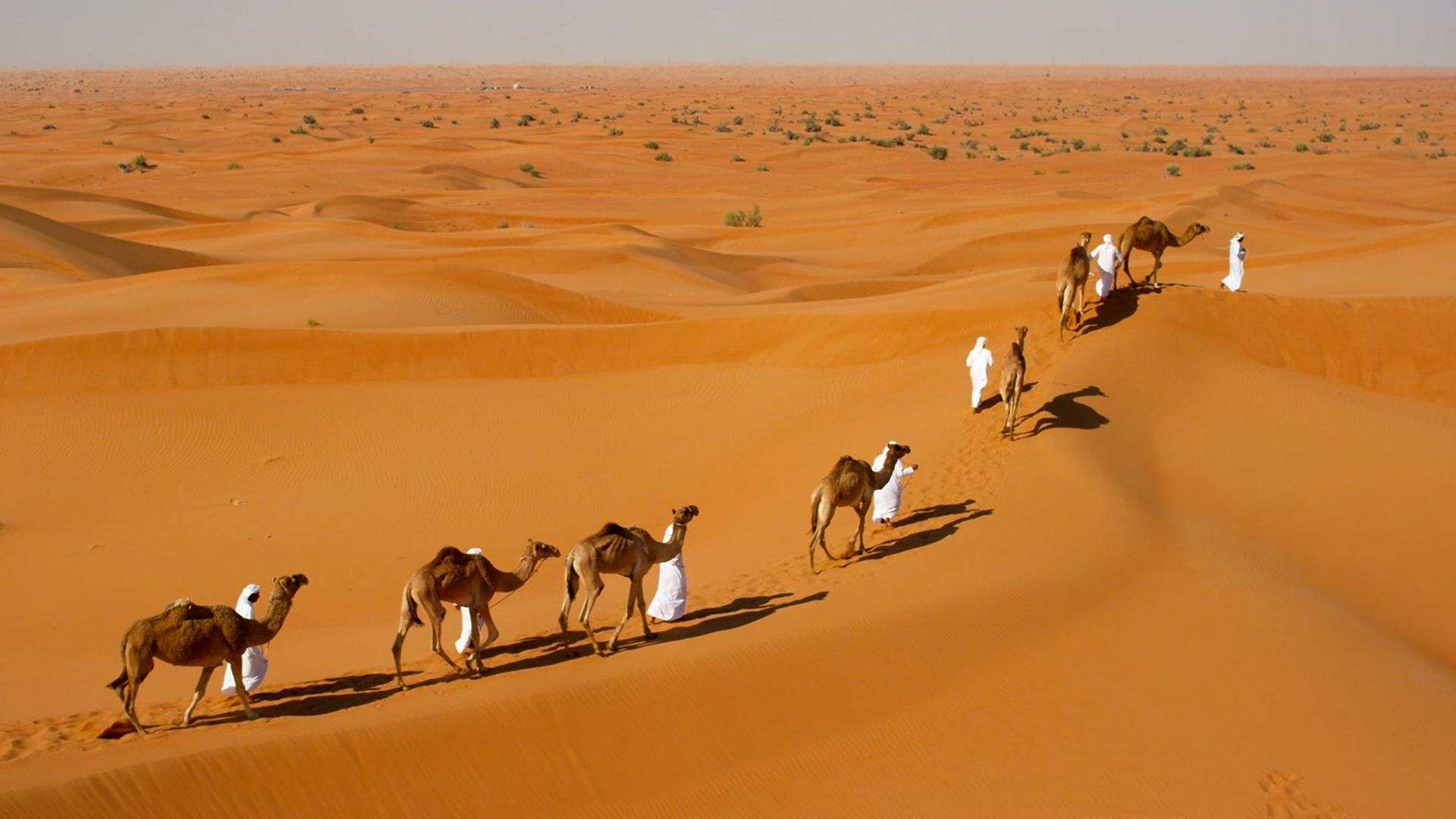The Bedouin People
The Arabian Peninsula is the ancient home of the Bedouin people – an ethnic group of nomadic Arabs who have traveled the vast deserts for centuries. The English word Bedouin comes from the Arabic word, Badawi, which means “desert dweller.” It’s from the Arabian desert that the original Bedouin tribes spread throughout the Middle East and North Africa.
According to tradition, the Bedouin are descended from two groups. The Yemeni, who settled in Southwest Arabia, and the Qaysi, who settled in North-Central Arabia. It’s the Qaysi that claim their ancestry from Ishmael, the son of Abraham and Hagar in the Bible’s Old Testament.
The Bedouin travel in caravans of 50 to 100 people. They set-up camp in large goat hair tents and are renowned for their hospitality. Although the Bedouin precede Islam by thousands of years, most Bedouin tribes in the Arabian Peninsula today follow the Islamic religion.
The Bedouin people share a common culture of herding camels, goats, and sheep. Throughout history, these animals were used for meat, dairy, and wool. Most staple foods in the Bedouin diet were based on dairy products such as cheeses, curds, and yoghurts. Camels were considered a “gift from God.” They had many uses – they were the primary mode of transportation and a main food source. In addition to their incredible milking potential — even in harsh conditions — their meat was considered an occasional delicacy.
While most ethnic Bedouins have left their nomadic lifestyles for modern urban conveniences, many retain cultural traditions such as family structure, food, music, and poetry.
The Bedouin People

Randall acts as the lead writer for ColdWater’s Drive Thru History® TV series and Drive Thru History® “Adventures” curriculum.



Leave a Reply